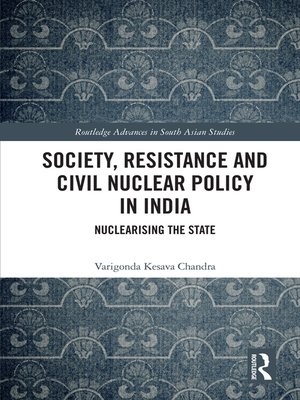Society, Resistance and Civil Nuclear Policy in India
ebook ∣ Nuclearising the State · Routledge Advances in South Asian Studies
By Varigonda Kesava Chandra

Sign up to save your library
With an OverDrive account, you can save your favorite libraries for at-a-glance information about availability. Find out more about OverDrive accounts.
Find this title in Libby, the library reading app by OverDrive.



Search for a digital library with this title
Title found at these libraries:
| Library Name | Distance |
|---|---|
| Loading... |
This book explores how anti-nuclear social movements impact the state's civil nuclear policy and its implementation by presenting a historical-comparative case study of anti-nuclear movements in India.
Drawing on social movement theory and empirical methods, the book demonstrates that the ability for anti-nuclear movements to impede the inception of nuclear plants – a key element of India's civil nuclear policy – is determined by the movement's collective action repertoires, the politicisation of nuclear power and the state's larger developmental paradigm, and the openness of state input structures. The case studies of anti-nuclear movements in Haripur, Kudankulam and Kovvada demonstrate how the implementation of civil nuclear policy is also determined by the state's technical and financial capacity and effective international collaboration.
With a focus on theorisation of social movements and their impact, combined with empirical studies of anti-nuclear movements, as well as the historical trajectory of civil nuclear development, the book adds a new prism to the study of India's civil nuclear policy and anti-nuclear opposition. It will be of interest to researchers working on social movements, state-society relations, energy studies and civil nuclear energy in the context of South Asia and the Global South.







